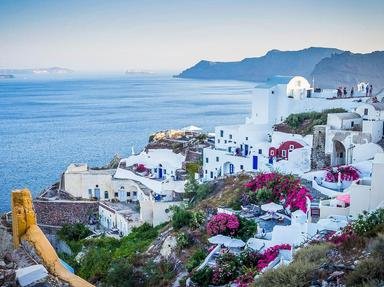Quiz Answer Key and Fun Facts
1. This town in the Bas-Rhin dept., France was the place where the German monk Otfrid completed his Old High German poetical version of the Gospels in the 9th century.
2. The German poet Goethe worked as a lawyer in this city in Hesse, Germany.
3. This town in Belgium is the site of a battle in 1815 (a phase of the battle of Waterloo) in which French General Grouchy drove back part of Prussian Field Marshal von Blücher´s force, but failed to aid French Emperor Napoleon.
4. This town in Upper Austria province, Austria was known to the Romans as Ovilava. It has a medieval imperial palace.
5. This Polish city was known to the Germans as Breslau. It became the capital of Silesia in the 12th century.
6. This seaport city in the Munster province, Ireland, is the capital of an county with the same name as the town. It is known for its crystal.
7. This city in Hampshire, England was known as Venta Belgarum by the Romans. It was a center for trade and cloth maing in Saxon times, and the capital of Wessex under Alfred the Great. It remained important under the Norman kings until the emergence of London as the sole capital of England in the late 12th century.
8. This German city was the site of the starting point of the Reformation (1517).
9. This city in Rhineland-Palatinate. Germany was known as Augusta Vangionum by the Romans. Its destruction by the Huns in 436 provided the source of the later German epic poem "Nibelungenlied". The Concordat of _____ ended the investiture controversy between the Pope and the Holy Roman Emperor here in 1122.
10. This German city was the capital of a Duchy from 1547 to 1918. Johann Sebastian Bach was the court musician here in the 18th century, it was also the residence of poets Johann Wolfgang von Goethe, Johann Herder and Friedrich von Schiller.
11. This city in Zürich canton, Switzerland was passed to the Habsburg family in 1264. It was made an imperial city in 1415, and came to Zürich in 1467.
12. What English city is this? It has a 12th century cathedral. The River Severn runs through it, and the decisive battle of the English Civil War occurred here in 1651.
13. This Belgian town is the site of the Flanders Field Cemetery, the only U.S. military cemetery in Belgium for soldiers of WWI.
14. This port in North Yorkshire, England was the meeting place of the Synod of ______ ca.663 at which the English church allied itself to Rome in preference to Ireland.
15. The garrison in this Irish town was massacred by Oliver Cromwell, who at that time (1649) was English commander in chief and lord lieutenant of Ireland.
Source: Author
author
This quiz was reviewed by FunTrivia editor
minch before going online.
Any errors found in FunTrivia content are routinely corrected through our feedback system.

